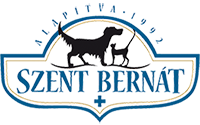Caring for Elderly Pets

From what age can we consider a dog or cat old?
It is widely believed that one year of a dog’s life is equivalent to seven human years, i.e. a ten-year-old dog is the age of a seventy-year-old person. The situation is not that simple, because there is a huge difference in the expected age between individual dog breeds.
The giant-bodied breeds (mastiffs, mastiffs, Caucasian shepherds) have significantly shorter lives than their medium- and small-bodied counterparts. So, as long as e.g. an eight-year-old Neapolitan Mastiff is already considered a Methuselah, while a dachshund or poodle of the same age can expect to have a few good years left.
There are also differences within species, since aging as a biological phenomenon does not take place in the same way in each individual. the appearance of other aging symptoms is not to the same extent in people of the same age).
In general, we can say that in an animal over the age of seven, we can already expect certain phenomena of old age.
What are these old age symptoms?
An old animal usually moves less, slower, slower, more deliberate, lameness often develops due to orthopedic changes.
Metabolism slows down, the body becomes more sensitive to changes in external temperature, both heat and cold take a greater toll. Like humans, gray hairs appear on it, the body’s water content decreases, and the skin loses its elasticity.
The capacity of the internal organs decreases, the heart and kidneys are less able to perform their tasks. Various warts and growths often appear on the skin.
Graying of the lenses of the eyes (cataracts) is a common phenomenon in old animals, which is associated with reduced vision.
Calculus, missing teeth and other dental problems are also common. Prostate disorders that cause difficulty urinating are not uncommon in male dogs.
Unfortunately, various tumorous diseases must also be expected in old animals, of which skin and mammary tumors are the most common.
What can the owner do to ensure a peaceful and beautiful old age for his old animal?
So many things!
Professional feeding of an elderly animal is extremely important.
The food should be easily digestible, rich in nutrients, and due to the slowing down of the metabolism, the need for food is generally less than that of young or middle-aged animals.
The various food production companies offer special food that meets the needs of elderly animals. a> are also marketed, and in fact, they are available from veterinarians and veterinary pharmacies, so-called medicinal foods as well.
It is a serious mistake to feed your animal exclusively on pulpy food, the lack of chewing quickly leads to severe calculus.
Regular movement and walking are also important.
Movement keeps the muscles and the heart in condition (and of course it doesn’t hurt the owner either).
The walk should preferably not be done in the hot sun and should not be forced, our pet will tell you exactly what is enough for him.
Veterinarians also have a serious task in caring for elderly patients.
At the time of the annual vaccinations, it is advisable to request a general screening examination from our veterinarian!
We can get a lot of important information with a simple blood test and urine test.
In this way, certain diseases and changes can be detected early and the therapy started in time will be significantly more effective.
If our pet’s condition is already critical, his illness can no longer be cured and he is in significant pain, he turns into himself, life apparently does not bring him joy, let us take the opportunity of euthanasia, do not allow him to suffer senselessly.
Let’s think that we owe him that much for the happy hours he gave us over the years.

Look for our geriatric laboratory profile designed for elderly patients in our office!
Diseases discovered in time have a much better chance of being cured!

Contact:
Address: 1188, Budapest, Kisfaludy utca 55/a.
Phone / Fax: (06-1) 295 3085
Email: info@szentbernat.hu



